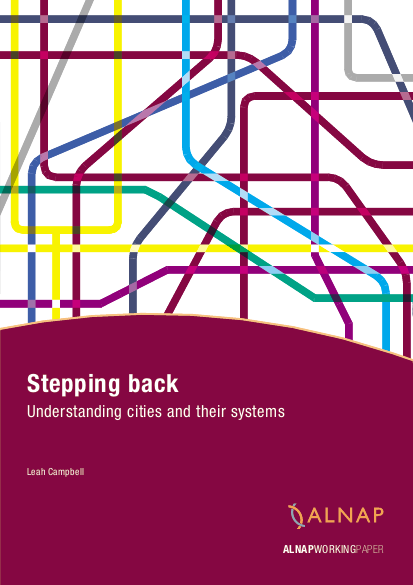
As part of the sector's research into humanitarian response in urban environments, ALNAP's working paper: ‘Stepping Back: Understanding Cities and their Systems’ explores the nature of urban contexts, and the potential of systems thinking as a way to improve our understanding of urban spaces. It argues the importance of stepping back as a first step towards changing policy and practice.
The world we live in is increasingly urbanized; 54% of the world’s population now lives in an urban environment. Having developed to respond to crises in rural settings and refugee camps, the humanitarian sector today is unequipped to deal with the realities of urban contexts. Despite organisations adapting their approaches, and developing tools and pilots, fundamental gaps remain.
This paper looks at the different systems and stakeholders in which exist in urban areas, and outlines what is important for humanitarians to know when responding in complex urban environment.
Resource collections
- UN Habitat - Urban Response Collection
- Urban Response - Urban Crisis Preparedness and Risk Reduction
- Urban Response Collection - Community Engagement and Social Cohesion
- Urban Response Collection - Economic Recovery
- Urban Response Collection - Environment and Climate Change
- Urban Response Collection - Housing, Land and Property
- Urban Response Collection - Urban Crisis Response, Recovery and Reconstruction
- Urban Response Collection - Urban Resilience